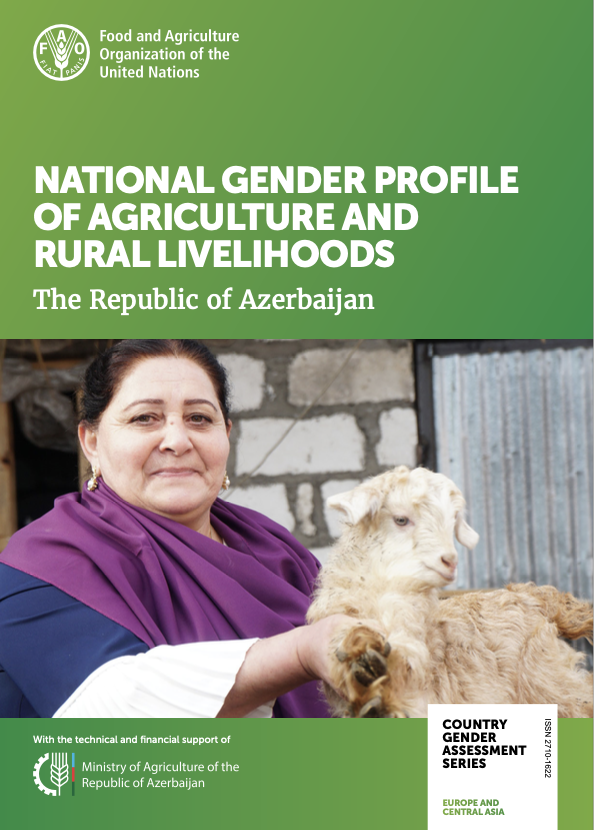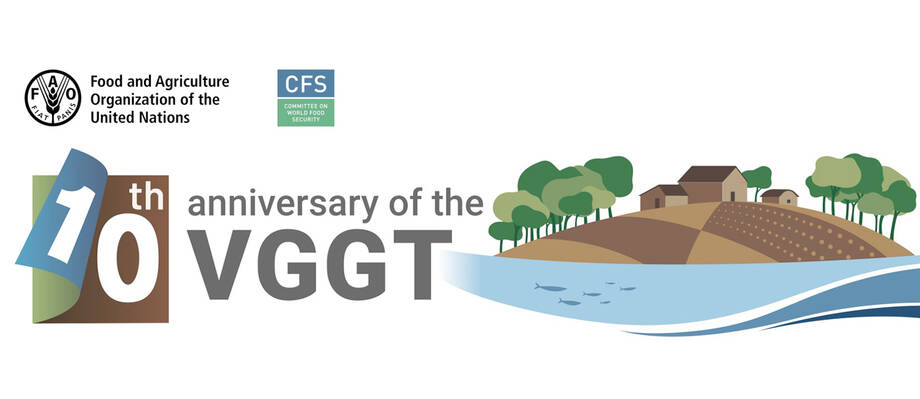Location
The Food and Agriculture Organization of the United Nations leads international efforts to defeat hunger. Serving both developed and developing countries, FAO acts as a neutral forum where all nations meet as equals to negotiate agreements and debate policy. FAO is also a source of knowledge and information. We help developing countries and countries in transition modernize and improve agriculture, forestry and fisheries practices and ensure good nutrition for all. Since our founding in 1945, we have focused special attention on developing rural areas, home to 70 percent of the world's poor and hungry people.
Members:
Resources
Displaying 11 - 15 of 168National gender profile of agriculture and rural livelihoods: The Republic of Azerbaijan
This country gender assessment (CGA) for the Republic of Azerbaijan was undertaken as part of FAO and national commitments to promote gender equality while integrating a gender perspective into its operations. The resulting CGA report focuses on the intersections of gender, agriculture and rural development, and presents a snapshot of critical gender-based inequalities and their consequences for agricultural production and rural livelihoods in Azerbaijan.
Report:Commemorating the 10th Anniversary of the CFS VGGT
The Voluntary Guidelines on the Responsible Governance of Tenure of Land, Fisheries and Forests in the context of National Food Security (CFS VGGT) promote secure tenure rights and equitable access to land, fisheries and forests as a means of eradicating hunger and poverty, supporting sustainable development, and enhancing the environment.
Technical Guide on the Integration of the Voluntary Guidelines on the Responsible Governance of Tenure of Land, Fisheries and Forests in the Context of National Food Security into the Implementation of the United Nations Convention to Combat Desertificati
Produced jointly by the secretariats of the Food and Agriculture Organization of the United Nations (FAO) and the United Nations Convention to Combat Desertification (UNCCD), with contributions from multiple stakeholders, this technical guide addresses the integration of the Voluntary Guidelines on the Responsible Governance of Tenure of Land, Fisheries, and Forests in the Context of National Food Security (VGGT) within the implementation of the UNCCD and Land Degradation Neutrality (LDN), thus opening a new chapter in ongoing efforts to combat desertification, land degradation, and drought
Technical Guide on the Integration of the Voluntary Guidelines on the Responsible Governance of Tenure of Land, Fisheries and Forests in the Context of National Food Security into the Implementation of the United Nations Convention to Combat Desertificati
Produced jointly by the secretariats of the Food and Agriculture Organization of the United Nations (FAO) and the United Nations Convention to Combat Desertification (UNCCD), with contributions from multiple stakeholders, this technical guide addresses the integration of the Voluntary Guidelines on the Responsible Governance of Tenure of Land, Fisheries, and Forests in the Context of National Food Security (VGGT) within the implementation of the UNCCD and Land Degradation Neutrality (LDN), thus opening a new chapter in ongoing efforts to combat desertification, land degradation, and drought
Overview of land degradation neutrality (LDN) in Europe and Central Asia
Land degradation neutrality (LDN) has been defined by the Parties to the Convention as: A state whereby the amount and quality of land resources, necessary to support ecosystem functions and services and enhance food security, remains stable or increases within specified temporal and spatial scales and ecosystems. The present report is an overview of the status of land degradation neutrality (LDN) in the region including a national overview for the 17 programme countries.





